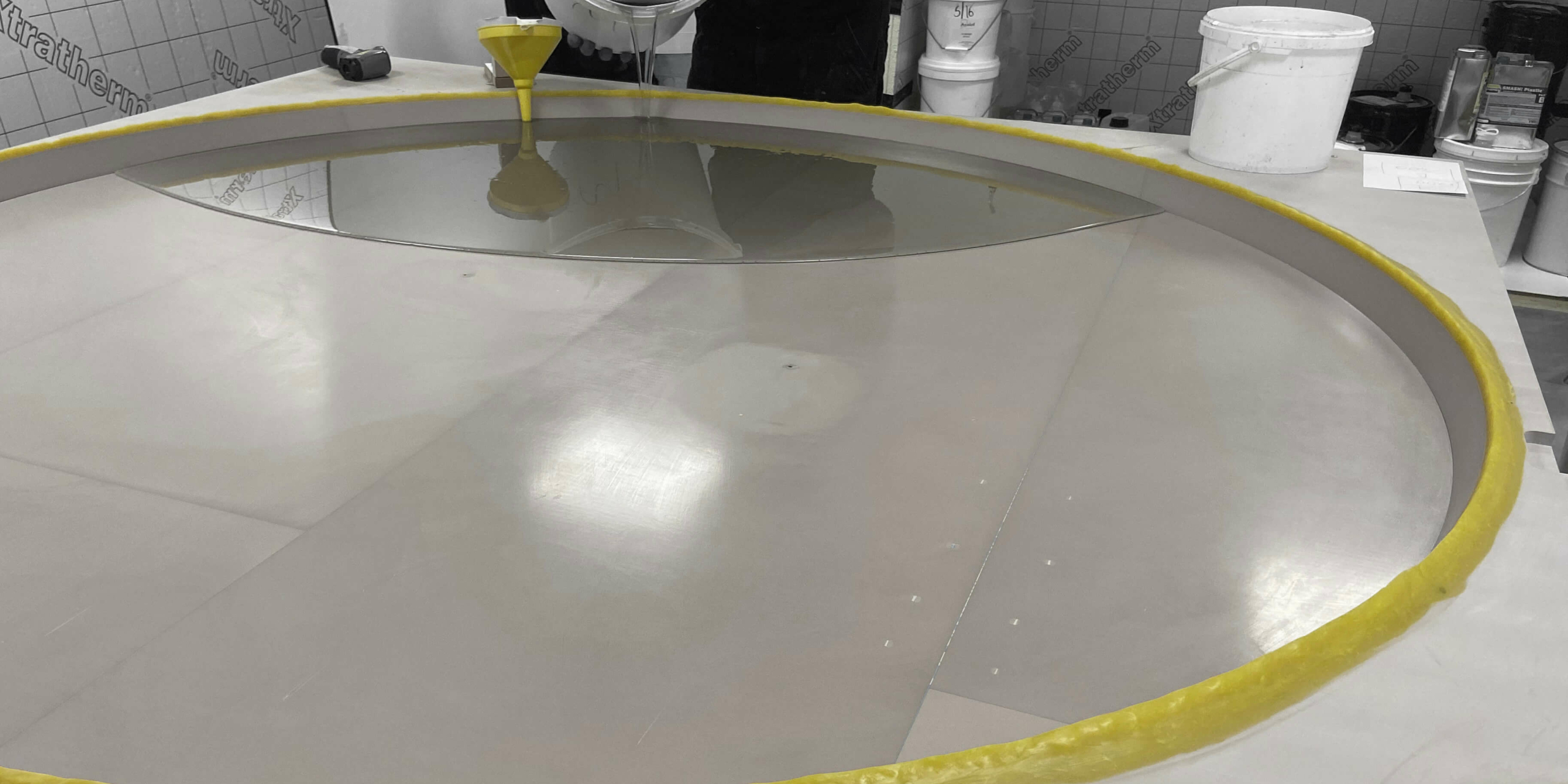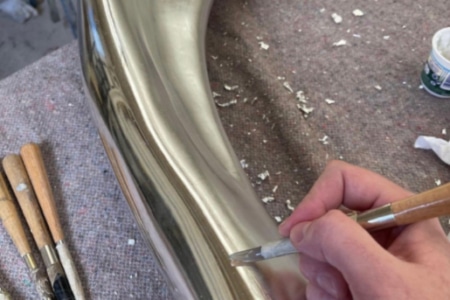Use Sustainable Materials
Whether you are creating one-off bespoke furniture or mass producing, it's critically important to rely on sustainable raw materials. By prioritising sustainable materials, the furniture industry can contribute to a more eco-friendly and ethical future.
Use Responsibly Sourced wood
To ensure sustainability in the furniture industry, you should rely on responsibly sourced wood for your design. Responsibly sourced wood comes from well-managed forests, where trees are harvested in a way that allows for regeneration and biodiversity. By using responsibly sourced wood, you can help protect forests and ensure their long-term health.
Look for timber suppliers that are certified by organisations like the Forest Stewardship Council (FSC) or the Programme for the Endorsement of Forest Certification (PEFC). These certifications guarantee that the wood is sourced from sustainable forests. Additionally, using certified wood can enhance your brand's reputation and appeal to customers who are increasingly concerned about the environmental impact of their purchases. By making this choice, you contribute to the preservation of our forests and make your product more desirable.
Use Recycled and Recyclable Materials
You can contribute to a more sustainable furniture industry by utilising recycled or recyclable materials in your products. By choosing to use recycled materials, you are helping to reduce the demand for new resources and minimising the environmental impact of furniture production. Recycled materials can include things like reclaimed wood, recycled plastics or even repurposed fabrics. These materials can be just as durable and functional as their new counterparts, while also being more environmentally friendly.
Additionally, using recyclable materials means that at the end of a product's life cycle, it can be easily broken down and reused to create new products, reducing waste and supporting circular economy practices. By incorporating recycled or recyclable materials into your furniture designs, you take a significant step towards creating a more sustainable product.
Avoid the Use of Toxic Glues and Finishes
Toxic adhesives and finishes can release harmful chemicals into the environment, posing health risks to both people, wildlife and the environment. Natural adhesives and finishes derived from plant-based or water-based sources, offer a non-toxic and environmentally friendly solution. Examples include starch-based adhesives and naturally occurring compounds such as beeswax. These materials are free from harmful chemicals like volatile organic compounds (VOCs) and formaldehyde, which can contribute to air pollution. Additionally, these materials often have a lower carbon footprint and can help reduce waste by being recycled or biodegradable.
Reduce Energy Consumption
To reduce energy consumption in the furniture industry, you can focus on implementing efficient production processes that reduce overall energy usage.
Efficient Production Processes
With the use of modern technology, you can significantly cut down on energy consumption during the production processes in the furniture industry. By implementing efficient production processes, furniture manufacturers can reduce their carbon footprint and contribute to a more sustainable future. One way to achieve this is through the use of energy-efficient production methods and equipment, such as additive manufacturing or modern CNC machining services. These modern tools are designed to minimise wastage and optimise production output.
Additionally, adopting sustainable practices such as recycling and reusing materials can further reduce energy consumption. By utilising innovative techniques like lean manufacturing and just-in-time inventory management, companies can streamline their operations and conserve energy.
Use Locally Sourced Materials
By sourcing local materials, you can greatly reduce energy consumption in the furniture industry. When materials are sourced locally, they don't need to be transported over long distances, which means less fuel is needed. This reduces greenhouse gas emissions and saves energy.
Local materials produced in the UK are often of higher quality and readily available, which can save time and resources in the production process. By purchasing materials from nearby suppliers, you can increase the quality of your product and contribute to the growth and sustainability of your own community.
Reduce Transport Emissions
For larger scale mass-production, investing in a more environmentally friendly supply chain is a great way to reduce your products’ environmental impact. By optimising shipping routes and consolidating shipments, you can significantly cut down on transportation emissions and reduce energy.
One effective strategy is to plan the most efficient routes for deliveries, ensuring that trucks are not driving unnecessary distances. Additionally, consolidating shipments allows for larger, fuller trucks, reducing the number of trips needed and decreasing fuel consumption.
Embrace Minimalism and Design Longevity
Though it may clash with some design objectives, you should consider embracing minimalism if sustainability is key to your product. Minimalism focuses on simplicity and removing unnecessary elements, resulting in designs that are clean and uncluttered.
This approach not only enhances the aesthetic appeal of your furniture pieces to a wide audience but also allows it to adapt to evolving interior styles. By adopting a minimalist approach, you can create furniture that is timeless, functional and therefore more sustainable.


Proper Disposal of Hazardous Materials
It is crucial to engage in responsible waste management to ensure the safety of both workers and the environment. Hazardous materials, such as paints, solvents or adhesives can pose serious health risks and have harmful effects on ecosystems if not handled properly. To dispose of these materials correctly, start by identifying them through clear labelling and training employees to recognise hazardous substances.
Separate them from non-hazardous waste to prevent contamination and potential accidents. Implement a designated storage area for hazardous materials and ensure proper disposal methods, such as using licensed waste disposal companies. By taking these steps, you can contribute to a more sustainable and environmentally friendly furniture industry.
Avoid Greenwashing
When it comes to sustainability in the furniture industry, it's important for you to genuinely commit to sustainable practices rather than just making marketing claims. Avoid greenwashing by ensuring transparency in your practices and the materials used. Don't just talk the talk, but walk the walk and make a real difference in the industry.
Genuinely Commit to Sustainability,
Don't Just Make
Marketing Claims
Make sure your company's commitment to sustainability is not just a marketing ploy, but a genuine effort to protect the environment. In today's world, consumers are becoming increasingly aware of the impact their purchasing decisions have on the planet. They want to support companies that align with their values and are genuinely committed to sustainability.
However, it is essential to avoid falling into the trap of greenwashing. Greenwashing refers to making false or exaggerated claims about the environmental benefits of a product or company. Though the term 'greenwashing' is relatively new, the UK government is already considering how it can be incorporated into consumer protection legislation.
To avoid greenwashing, your company should strive for authenticity in its sustainability practices. This means implementing concrete measures to reduce environmental impact from design to delivery of the final article.
Ensure Transparency in Practices and Materials Used
To ensure transparency in your practices and materials used, be open and honest with consumers about your sustainability efforts. It is essential to provide clear information about your sustainability practices and materials.
Clearly state your commitments and goals, such as using renewable materials, reducing waste or implementing energy-efficient manufacturing processes. Provide details about the certifications and standards you adhere to, like Forest Stewardship Council (FSC) or Leadership in Energy and Environmental Design (LEED). Share your progress and achievements, whether it's through annual sustainability reports or by displaying labels and symbols that indicate your eco-friendly practices. By being transparent, you build trust with consumers who value sustainability and demonstrate your genuine commitment to a greener future.
TALK TO THE EXPERTS
Established in 1985, we have built a strong reputation for manufacturing excellent products within tight timescales and to extremely high tolerances. In order to achieve this, we use state of the art equipment and traditional, time honoured processes and skills.
Call us on:
01455 890 571
Email us at:
sales@pentapatterns.co.uk


